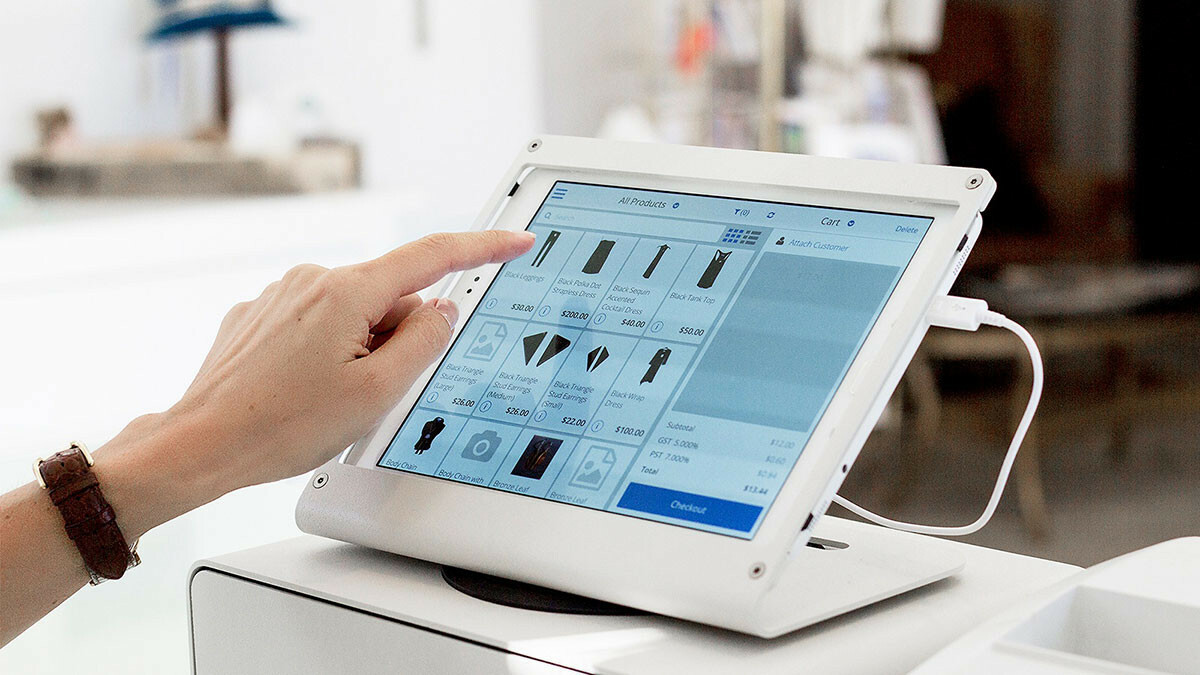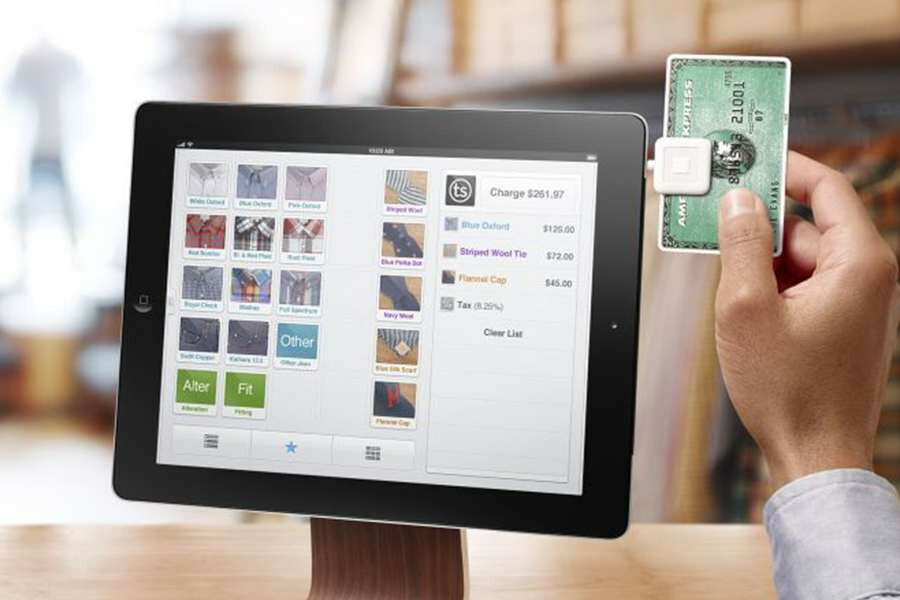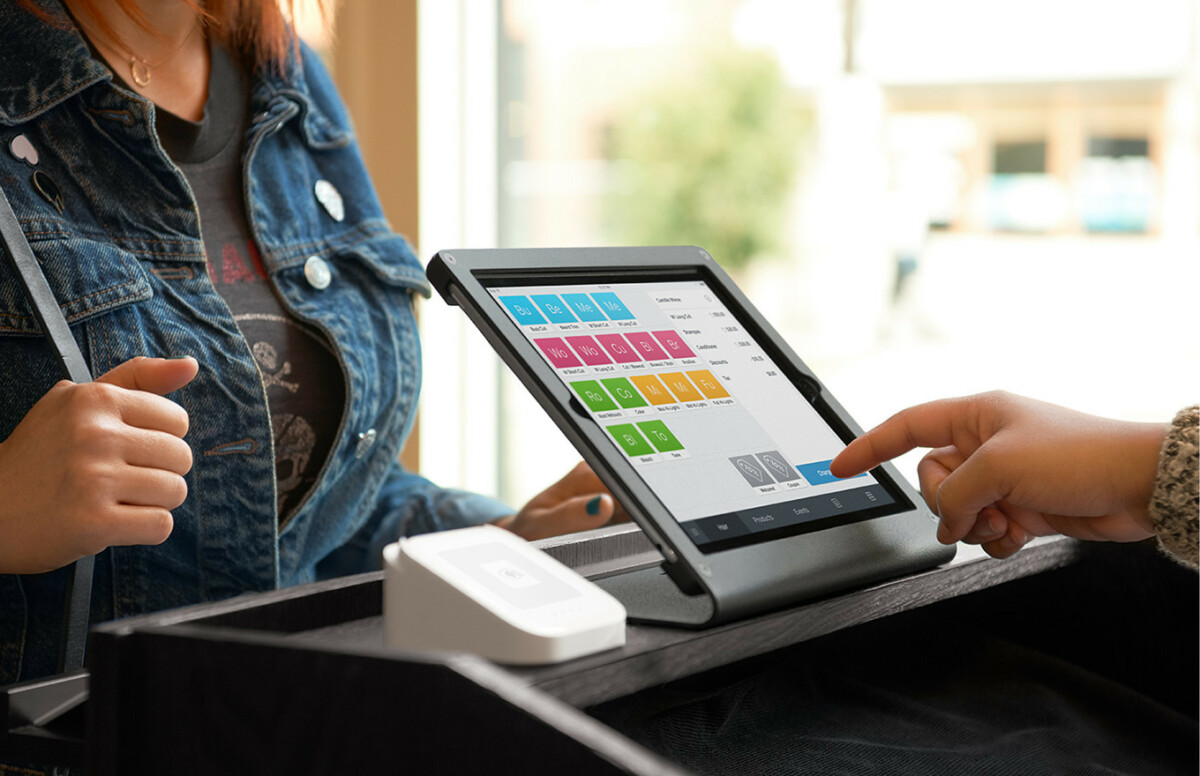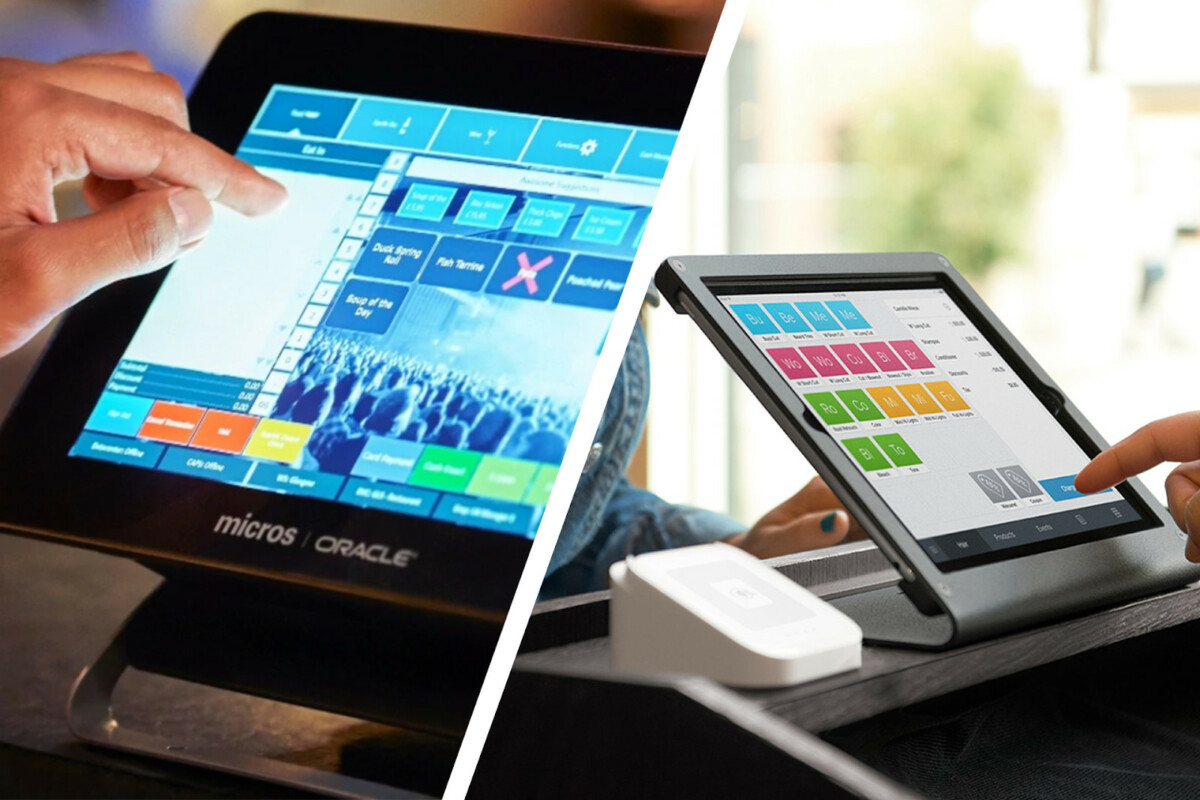Maximizing Efficiency and Profits with the Best POS Tools for Real Estate Industry
They trust us:





Best POS Tools For the Real Estate Industry

(source: https://images.app.goo.gl/Sy77r2q7FCoTYKiy8)
Point of sale (POS) tools are essential for the real estate industry, as they enable businesses to manage transactions and track inventory.
One of the best POS tools for the industry is Square. This platform offers a range of solutions for managing transactions, including hardware and software solutions for in-person and online payments. With its powerful tools and user-friendly interface, Square is an excellent choice for businesses looking to streamline their transaction management processes.
Another popular POS tool is Lightspeed, which offers a range of features, including inventory management and customer relationship management. With its comprehensive tools and advanced reporting capabilities, Lightspeed is a great choice for businesses of all sizes.
Finally, Toast is a comprehensive POS tool that offers a range of solutions, including menu management and employee management. Its powerful tools make it an ideal choice for larger businesses with complex transaction management needs. Overall, these POS tools are essential for real estate professionals looking to manage transactions and track inventory, making them a must-have for businesses looking to optimize their point of sale processes.
What is Oliver POS?
Oliver POS is a cloud-based point of sale (POS) system that helps businesses manage their sales, inventory, customers, and staff. It is a popular POS system designed for small and medium-sized businesses that sell both online and offline.
With Oliver POS, businesses can accept payments, manage orders, track inventory, and generate reports in one centralized system. The system is highly customizable and allows businesses to add multiple payment gateways, integrate with various ecommerce platforms, and use multiple devices to manage their operations.
Oliver POS also provides various features such as product management, customer management, employee management, and reporting to help businesses streamline their processes and make informed decisions.
What are the features of Oliver POS?
Oliver POS is a point-of-sale (POS) system for WooCommerce that helps businesses manage sales and inventory. Some of the features of Oliver POS include:
Real-time syncing with WooCommerce inventory and orders.
Customizable checkout with product bundles, discounts, and gift cards.
Ability to add custom products and modifiers.
Multi-location management.
Integrated customer relationship management (CRM).
Sales reports and analytics.
Offline mode for uninterrupted sales during internet downtime.
Secure payment processing with multiple payment options.
Integration with third-party apps and services.
24/7 customer support.
What is the pricing of Oliver POS?
Oliver POS offers two pricing plans: Standard and Premium.
The Standard plan costs $19 per month and includes 1 register, unlimited products, staff members, and customers. It also includes basic inventory management, sales reporting, and 24/7 email support.
The Premium plan costs $39 per month and includes all of the features of the Standard plan, as well as multi-register support, advanced inventory management, purchase orders, and advanced sales reporting. It also includes priority support.
Oliver POS also offers a free 14-day trial for both plans.
What is Bindo POS?
Bindo POS is a point-of-sale (POS) software designed for retailers and small businesses. It offers an all-in-one platform for managing inventory, processing transactions, generating reports, and tracking customer information. Bindo POS features an intuitive interface, making it easy for users to manage sales, payments, and inventory in real-time.
The software is designed to work on various devices, including mobile phones, tablets, and desktop computers, giving users the flexibility to manage their business from anywhere. With Bindo POS, users can also manage their e-commerce store, offering an integrated solution for both online and offline sales.
What are the features of Bindo POS?
Bindo POS is a cloud-based point of sale solution designed for retailers, restaurants, and other small to medium-sized businesses. Some of the features of Bindo POS include:
Inventory Management: Bindo POS offers inventory management tools that allow businesses to manage their inventory levels, track stock levels, and set reorder points.
Payment Processing: Bindo POS accepts a wide range of payment options, including credit cards, cash, and mobile payments.
Sales Reporting and Analytics: The platform provides real-time sales data and analytics to help businesses track their performance and make informed decisions.
Customer Management: Bindo POS offers tools to manage customer profiles, track customer purchases, and send targeted marketing campaigns.
Employee Management: The platform allows businesses to manage employee schedules, track time and attendance, and monitor performance.
Multi-Location Support: Bindo POS can manage multiple locations from a single dashboard, allowing businesses to view and manage inventory levels across all their locations.
Mobile POS: The platform offers a mobile POS solution that allows businesses to accept payments and manage sales on the go.
Integration: Bindo POS can be integrated with a variety of third-party apps and services, including accounting software, e-commerce platforms, and marketing tools.
What is the pricing of Bindo POS?
Bindo POS is a powerful point of sale system that offers an easy to use, intuitive interface and a wide range of features to help businesses of all sizes streamline their operations. With Bindo POS, businesses can easily track inventory, manage customer relationships, and process payments.
The pricing of Bindo POS is highly competitive, with plans starting at just $49/month. This low-cost pricing model makes Bindo POS an ideal solution for small businesses looking to maximize their efficiency and profitability.
Bindo POS also offers a range of features designed to help businesses of all sizes get the most out of their point of sale system. These features include inventory management, customer loyalty programs, and integrated payment processing.
With Bindo POS, businesses can easily keep track of their inventory levels, manage customer relationships, and process payments quickly and securely. Additionally, Bindo POS offers a range of analytics and reporting tools to help businesses gain insight into their operations and make informed decisions.
Bindo POS is an ideal solution for businesses looking for an easy to use, reliable, and cost-effective point of sale system. With its low-cost pricing model and comprehensive feature set, Bindo POS is a great choice for businesses of all sizes. Whether you’re a small business looking to maximize your efficiency or a large enterprise looking to streamline your operations, Bindo POS is the perfect solution.
What is Alice POS?
Alice POS is a point of sale (POS) software designed for retailers and small businesses. It provides various features such as inventory management, customer management, sales tracking, and employee management. The software is designed to be user-friendly and customizable, allowing businesses to set up their POS system to meet their specific needs.
Alice POS also offers various integrations with payment processors, accounting software, and eCommerce platforms to help businesses streamline their operations.
What are the features of Alice POS?
Alice POS is a cloud-based point of sale (POS) system designed for small and medium-sized retail businesses. Some of its key features include:
Inventory management: Alice POS allows businesses to track their inventory levels in real-time, set reorder points, and receive low inventory alerts. It also allows for multiple pricing levels and automated purchase orders.
Customer management: With Alice POS, businesses can create and manage customer profiles, track their purchase history, and offer loyalty programs and discounts.
Sales and payment processing: Alice POS allows businesses to process transactions, accept multiple payment methods, and split payments between different methods. It also offers features such as returns, refunds, and exchanges.
Reporting and analytics: Alice POS provides businesses with sales reports, inventory reports, and analytics on customer behavior and preferences.
Integrations: Alice POS integrates with a range of third-party tools and services, including payment processors, accounting software, and e-commerce platforms.
Multi-location management: Alice POS allows businesses to manage multiple locations and track inventory and sales across all of them in real-time.
Customizable user interface: Alice POS provides a highly customizable user interface, allowing businesses to tailor the system to their specific needs and preferences.
What is the pricing of Alice POS?
According to the website, Alice POS offers various pricing plans based on the number of locations and registers needed. The pricing starts at $69 per month for one location and one register, with additional charges for extra locations and registers. Customers can contact Alice POS directly for a custom quote.
What is Pomodo POS?
Pomodo POS is a point-of-sale software designed for retail businesses. It helps streamline sales transactions, inventory management, customer management, and reporting. The software is designed to be user-friendly and customizable to fit the specific needs of a business.
It can be used on desktops, laptops, and mobile devices, and includes features such as barcode scanning, payment processing, and employee management. The software is cloud-based, which means data can be accessed from anywhere with an internet connection, and it is also designed to work offline in case of connectivity issues.
What are the features of Pomodo POS?
Pomodo POS is a point-of-sale software designed for retail businesses. Its features include:
Inventory Management: Pomodo POS helps retailers manage their inventory levels, track stock movements, and set up reorder points. It also allows for bulk inventory imports and exports.
Sales Reporting: The software generates sales reports that provide insights into sales trends, employee performance, and product performance. Retailers can also track their sales in real-time and make informed decisions about their business.
Customer Management: Pomodo POS allows retailers to manage their customer database and keep track of customer orders, preferences, and purchase history. This information can be used to create targeted marketing campaigns and promotions.
Multi-Store Management: Pomodo POS allows retailers to manage multiple stores from a single account. It also enables them to transfer inventory between stores, view store-specific sales reports, and manage employees across multiple locations.
Payment Processing: The software integrates with various payment processors, making it easy for retailers to accept payments from customers. It supports multiple payment methods, including credit cards, debit cards, and mobile payments.
Employee Management: Pomodo POS enables retailers to manage their employees’ schedules, track their hours, and set up permissions and roles. It also generates performance reports, making it easy to evaluate employee performance.
Customizable POS: The software allows retailers to customize their POS system according to their business needs. They can add or remove features, create custom product categories, and configure their POS interface to suit their business requirements.
What is the pricing of Pomodo POS?
Pomodo POS: An Affordable and Feature-Rich Point of Sale System
Pomodo POS is a feature-rich point of sale system designed to make transactions easier and more efficient for businesses in the real estate industry. It offers a comprehensive suite of tools and features that can help streamline operations, improve customer experience, and reduce costs. The pricing of Pomodo POS is competitive and affordable, making it an ideal choice for businesses of all sizes.
For businesses looking for an all-in-one point of sale system, Pomodo POS is a great choice. It offers a wide range of features, including inventory management, customer loyalty programs, and employee scheduling. It also integrates with leading payment processors, allowing businesses to accept credit cards, debit cards, and other forms of payments.
Additionally, Pomodo POS is cloud-based, which means businesses can access their data and information from any device, anytime and anywhere.
Pomodo POS is designed to be user-friendly and intuitive, making it easy for businesses to get up and running quickly. It also offers a range of support options, including online tutorials, live chat, and phone support. Plus, the system is regularly updated with the latest features and security updates, so businesses can be sure they’re always up-to-date with the latest technology.
Overall, Pomodo POS is a reliable and affordable point of sale system that is perfect for businesses in the real estate industry. With its comprehensive suite of features, user-friendly interface, and competitive pricing, Pomodo POS is an ideal choice for businesses looking to streamline operations and improve customer experience.
What is GoTab POS?
GoTab is a point-of-sale (POS) and contactless ordering platform for restaurants, bars, and other hospitality businesses. It allows customers to browse menus, order, and pay using their own mobile devices, reducing the need for physical menus, cash handling, and staff interaction.
The platform includes features like real-time inventory management, reporting, and integration with popular payment providers. It is designed to help businesses streamline operations and improve the customer experience.
What are the features of GoTab POS?
GoTab POS is a mobile point-of-sale system designed for restaurants, bars, and other hospitality businesses. Its features include:
Contactless Ordering: GoTab allows customers to scan a QR code on their table to access the menu and place orders directly from their mobile devices.
Payment Processing: Customers can pay for their orders securely and easily through the GoTab system, which accepts various payment options like credit/debit cards, mobile payments, and gift cards.
Customizable Menu: Restaurants can create and update their menu quickly and easily, as well as manage inventory levels and pricing.
Reporting and Analytics: GoTab provides real-time sales data and reporting to help businesses track sales, manage inventory, and analyze performance.
Loyalty Programs: GoTab helps restaurants create and manage customer loyalty programs to incentivize repeat business.
Order Management: The system allows staff to manage orders from multiple sources, including dine-in, take-out, and delivery orders, and provides tools to optimize order routing, minimize wait times, and reduce errors.
Integrations: GoTab integrates with various third-party software like accounting software, online ordering platforms, and customer relationship management (CRM) tools.
What is the pricing of GoTab POS?
GoTab POS has different pricing plans based on the features and capabilities required by businesses. They offer a Starter plan, which costs $49 per month and includes basic POS functionality, inventory management, and reporting features.
Their Professional plan is priced at $99 per month and includes additional features such as employee management, tableside ordering, and integration with third-party apps. They also have an Enterprise plan with custom pricing, which includes advanced features such as multi-location management and customized reporting. It’s best to contact GoTab POS directly to get a detailed quote based on your specific business needs.
What are POS tools?
POS (Point of Sale) tools are software applications used to manage and process sales transactions. These tools are designed to help businesses and organizations manage their sales operations, track inventory, and process payments from customers.
POS tools typically include features such as inventory management, sales reporting, customer management, and payment processing. They can be used to manage various types of sales operations, such as retail sales, restaurant sales, and e-commerce sales.
By using POS tools, businesses and organizations can streamline their sales operations, track inventory levels, and process payments from customers. They can also gain insights into their sales performance and behavior, and make data-driven decisions to optimize their sales strategies.
Some popular POS tools include Square, Shopify POS, and Lightspeed. These tools can be used by businesses of all sizes and industries to manage and process their sales transactions, and optimize their sales strategies. Overall, POS tools are an important investment for any organization looking to streamline their sales operations, track inventory levels, and process payments from customers.
Why should Real Estate companies use POS tools?
(source: https://images.app.goo.gl/qnRhVUsCxkKdYPzm9)
Real estate companies can benefit from using point-of-sale (POS) tools to manage their sales and transactions in a streamlined and efficient manner. POS tools allow real estate companies to process sales transactions, manage inventory, and track customer data in real-time, providing valuable insights into sales performance and customer behavior.
These tools can also help real estate companies to improve their customer experience and satisfaction, by offering convenient payment options and personalized service. Additionally, POS tools can help real estate companies to increase their sales and revenue, by identifying and prioritizing high-performing products and services.
By using POS tools, real estate companies can improve their sales and transaction management processes, enhance their customer experience and satisfaction, increase their revenue and profitability, and ultimately, grow their business.
What features should POS tools include for Real Estate agents?
Point of Sale (POS) tools are essential for real estate agents who manage transactions related to property sales, rentals, and other related services. When it comes to choosing the right POS tools, there are several key features that should be considered.
Firstly, the software should have an easy-to-use interface that allows real estate agents to process transactions quickly and efficiently, including the ability to manage multiple payment types and create receipts or invoices.
Secondly, POS tools for real estate agents should include features that allow for customization and personalization of the transaction process, such as adding branding or custom messaging.
Thirdly, the software should have the ability to provide real-time reporting and analytics on transaction data, allowing real estate agents to track performance and make informed business decisions.
Fourthly, POS tools should have features that enable real-time inventory management and tracking of property availability, allowing real estate agents to manage their listings effectively.
Fifthly, the software should have the ability to integrate with other tools and platforms used by real estate agents, such as CRM systems and accounting software.
Lastly, the software should have the ability to provide training and support for real estate agents, including the ability to access online resources and receive personalized coaching and feedback.
With these key features, real estate agents can streamline their transaction processes, improve customer satisfaction, and grow their business through effective management of their transactions and inventory.
What types of integrations are important with POS tools for Real Estate agents?
(source: https://images.app.goo.gl/P89hnFytqWyJYyct8)
Integrations are an important aspect of point-of-sale (POS) tools for real estate agents, as they can help to streamline sales transactions and improve customer experience. Some of the key integrations to look for when selecting a POS tool include:
Payment gateways: Integrating POS tools with payment gateways such as PayPal, Stripe, or other online payment systems can allow real estate agents to accept payments from customers quickly and securely. This integration can help agents to improve the speed and accuracy of their transactions, and increase customer satisfaction.
Inventory management software: Integrating POS tools with inventory management software can allow real estate agents to manage their inventory levels and sales data in real-time. This integration can help agents to make informed decisions about their business, and avoid stockouts or overstocks.
Accounting software: Integrating POS tools with accounting software such as QuickBooks, Xero, or other financial management systems can allow real estate agents to manage their finances and track their sales data in one place. This integration can help agents to streamline their bookkeeping process, and simplify their tax reporting.
Customer relationship management (CRM) software: Integrating POS tools with CRM software such as Salesforce, HubSpot, or other customer management systems can allow real estate agents to track customer interactions and sales data in one place. This integration can help agents to personalize their customer service, and improve their customer retention.
By selecting a POS tool with these integrations, real estate agents can streamline their sales transactions, improve their customer experience, and make informed business decisions.
What are the benefits of using POS tools for Real Estate companies?
Point of Sale (POS) tools offer several benefits for real estate companies. Firstly, they allow for more efficient and accurate transactions, by streamlining the process of accepting payments and managing inventory. This can help to reduce errors and increase customer satisfaction, leading to repeat business and positive reviews.
Secondly, POS tools provide real-time analytics and reporting, allowing real estate companies to track sales performance and inventory levels. This can help to optimize pricing and inventory management, leading to increased profitability.
Thirdly, POS tools can help real estate companies to improve the customer experience, by providing personalized recommendations and loyalty programs. This can help to build long-term relationships with clients, leading to increased customer retention and business growth.
Overall, the benefits of using POS tools in the real estate industry are clear. They provide efficient and accurate transactions, real-time analytics, and improved customer experience, leading to increased profitability and business success.
How to choose the right POS tool for your Real Estate business?
(source: https://images.app.goo.gl/Z6AzknuuxZti1fUDA)
Choosing the right POS (Point of Sale) tool for your Real Estate business is crucial for streamlining your sales processes and improving customer experience. Here are some factors to consider when selecting a POS tool:
Compatibility: Ensure that the POS tool is compatible with your existing hardware and software systems, including your payment processor and inventory management system.
Functionality: Consider the features you need in a POS tool, such as inventory tracking, barcode scanning, customer management, and reporting capabilities. Choose a tool that meets your specific needs and requirements.
User interface: Look for a POS tool that is easy to use and intuitive for both your staff and customers. The interface should be visually appealing and easy to navigate.
Security: Choose a POS tool that provides secure payment processing and protects customer data. Look for a tool that is PCI compliant and offers encryption and tokenization to safeguard customer information.
Mobility: Consider whether you need a mobile POS tool that can be used on a tablet or smartphone. This can be especially useful for real estate businesses that require flexibility and mobility.
Support: Evaluate the level of support provided by the POS tool provider, including customer service and resources such as online tutorials and documentation.
Pricing: Consider the pricing structure of the POS tool, including any upfront costs, subscription fees, and additional costs for advanced features or support.
By considering these factors and choosing the right POS tool, you can streamline your sales processes and provide a seamless customer experience for your real estate business.
How much does the POS tools cost for the Real Estate industry?
Point of sale (POS) tools are an important component of the real estate industry, enabling businesses to process transactions and manage inventory in an efficient and effective manner. The cost of POS tools can vary widely, depending on the specific software and the features and capabilities it offers.
Some basic POS tools can be obtained for free, while more advanced and sophisticated software can cost several hundred to several thousand dollars per year. For example, popular POS tools like Square and Shopify can cost between $0 to $299+ per month, depending on the level of features and functionality required.
However, some providers offer custom pricing plans, which can help real estate businesses to manage their costs more effectively. Additionally, some POS tools are designed specifically for real estate businesses, which can provide tailored features and support. Overall, the cost of POS tools will depend on the specific needs and budget of the real estate business, and it is important to carefully evaluate different options before making a decision.
Why are POS tools important for the success of your Real Estate business?
(source: https://images.app.goo.gl/pGiVyi35nuWstva96)
Point of sale (POS) tools have become increasingly important in the real estate industry, particularly for businesses that operate in property management and leasing. These tools offer a range of benefits that can help to improve the success of a real estate business.
One of the key benefits of POS tools is that they can help real estate businesses to improve their transaction management and streamline their payment processes. By providing features such as payment processing, invoicing, and receipt management, POS tools can help to ensure that real estate businesses are managing their transactions efficiently and accurately, reducing errors and improving the customer experience.
Another important advantage of POS tools is that they can help to improve the accuracy and reliability of financial reporting for real estate businesses. By providing features such as automated accounting, tax management, and financial reporting, POS tools can help to ensure that real estate businesses are maintaining accurate financial records and complying with regulatory requirements, improving their financial management and decision-making.
In addition, POS tools can help real estate businesses to improve their customer relationship management and loyalty programs. By providing features such as customer profiling, loyalty rewards, and personalized offers, POS tools can help real estate businesses to build stronger relationships with their customers and improve customer satisfaction and loyalty.
Overall, POS tools are an essential component of any successful real estate business that wants to improve their transaction management, financial reporting, and customer relationship management, providing a range of benefits such as improved efficiency and accuracy, improved financial management, and improved customer satisfaction and loyalty.
How to implement POS tools as a realtor?
As a realtor, implementing POS (Point of Sale) tools can help you manage your sales transactions, inventory, and customer information. Here are some steps to help you get started:
Choose a POS tool: There are many POS tools available in the market, each with its own set of features and capabilities. Some popular options include Square, Vend, and Lightspeed.
Install and set up the tool: Once you have chosen a POS tool, it’s important to install and set it up on your device or computer. This may involve creating an account, configuring settings, and integrating the tool with your payment processor or inventory management system.
Set up your inventory: With the POS tool in place, it’s important to set up your inventory of properties, including their prices, descriptions, and any other relevant information. This may involve creating product listings in the tool or importing data from your inventory management system.
Process transactions: Once your inventory is set up, you can begin processing transactions using the POS tool. This may involve entering product information, accepting payment, and printing receipts.
Manage customer information: POS tools also allow you to manage customer information, such as contact details, transaction history, and preferences. This can help you provide better customer service and targeted marketing campaigns.
Analyze sales data: Finally, POS tools provide sales data and analytics that can help you understand your business performance, including sales trends, customer behavior, and inventory levels. This information can be used to make informed business decisions and optimize your operations.
By implementing POS tools as a realtor, you can streamline your sales transactions, manage your inventory, and provide better customer service. This can help improve your business performance and drive growth.
Which type of real estate companies should buy POS software?
(source: https://images.app.goo.gl/UHrTynB9mCqRPByh7)
Real estate companies that have physical stores or offices and sell products or services to customers should consider purchasing point-of-sale (POS) software. This type of software can help real estate professionals manage their sales, inventory, and customer data in real-time, improving their operational efficiency, accuracy, and customer experience.
POS software can help real estate companies enhance their sales performance, inventory management, and customer engagement by providing a fast and easy way to process transactions, track products, and collect customer information.
Additionally, POS software can help real estate companies save time and resources by automating tasks such as payment processing, receipt printing, and loyalty program management. For example, POS software can help real estate companies manage their property transactions, track their properties’ availability and pricing, and store their customers’ preferences and feedback.
Finally, POS software can help real estate companies enhance their sales strategy and decision-making by providing tools for sales analytics, staff performance, and inventory optimization. Overall, POS software can help real estate companies improve their sales, inventory, and business outcomes.
Final thoughts on using POS tools for real estate agents
In conclusion, using POS (Point of Sale) tools can be a valuable asset for real estate agents who want to streamline and optimize their sales and payment processes, such as property sales and rental agreements. These tools allow agents to manage and process transactions, such as credit card payments, checks, and cash, through an online platform, which can improve the speed and accuracy of their sales and accounting processes.
By using POS tools, agents can also track and manage inventory, monitor sales and revenue, and generate reports and analytics on their sales performance. According to industry experts, companies that use POS tools have seen a 30% reduction in transaction time and a 25% improvement in inventory accuracy.
Overall, POS tools can help real estate agents improve their customer service and satisfaction, optimize their sales and payment processes, and ultimately, drive more business and revenue.
Top 5 POS tools for real estate agents
| Oliver POS | |||
| Bindo POS | |||
| Alice POS | |||
| Pomodo POS | |||
| GoTab POS |










